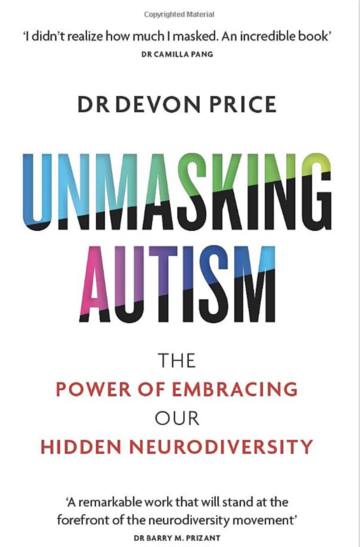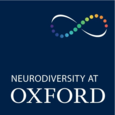Unmasking Autism: The Power of Embracing Our Hidden Neurodiversity
Unmasking Autism: The Power of Embracing Our Hidden Neurodiversity

Behind the Mask: Discovering Our Autistic Selves and the Revelatory Power of Difference
Devon Price’s searing exploration of how to build a life of radical acceptance and visibility for Autistic people seamlessly blends the personal and the political. Building upon a carefully anatomised study of how each Autistic person’s neurodiversity manifests differently due to complex social, cultural and economic structures, Price’s manifesto is proudly intersectional and committed to amplifying the voices of Autistic people who have been marginalised in social discourse, and even within disability activist spaces themselves. Drawing upon extensive interviews with #ActuallyAutistic people across a wide-ranging sample of social and cultural backgrounds, Unmasking Autism is a bold celebration of neurodiverse experiences, committed to building a vibrant, more inclusive global community.
By focusing on the concept of unmasking, the book engages closely with the issue of stigma (including self-stigmatisation) and how and why many Autistic people are compelled to conceal their neurodiversity. The pressure to conform to neurotypical patterns of behaviour is unequally distributed amongst social groups: those who are white, middle-class, and male are more able to present their Autistic traits in public spaces because of entrenched privilege, as their behaviour is less likely to be branded deviant, subversive or in need of policing. Conversely, women and gender minorities, as well as Black and brown Autistic people, “have been systematically denied access to diagnosis for decades, and are frequently still ignored in public and psychiatric conversations about neurodivergence” (53). As such, these groups are liable to misdiagnoses of Borderline Personality Disorder or Narcissism, or are presumed to be too “high functioning” to warrant the accommodations they require. As Price explains, “many Autistic women develop an inoffensive, quiet personality as a crutch to counterbalance their social disadvantages” (54), which makes it more difficult to perceive the extent of suffering and exhaustion they experience from masking. These patterns of behaviour are also frequently used as a protective strategy by gender-nonconforming and trans Autistic people, due to the analogous and intensified multilayered oppression these groups experience. Price likewise considers how physical and intellectual disabilities, AuDHD, and mental health conditions interact with Autism and exacerbate prejudice towards Autistic people.
In the case of Autistic people of colour, ableism and racism (alongside misogynoir) combine to produce chronic underdiagnosis and pernicious labelling of Autistic traits. The genuine risks of physical harm and potential incarceration are liable to trigger forced suppression of perceived ‘antisocial’ behaviour due to Autism, as “when Black and brown Autistics fail to comply with medical instructions… they’re frequently institutionalised and stripped of legal autonomy” (65). Price draws a parallel with racialised code switching, or the adoption of “different linguistic and social presentations for different situations” (63). Like Autistic masking, code switching is a defensive strategy as well as “a cognitively demanding activity … associated with psychological stress and feeling inauthentic and socially isolated” (63). Within the US, half of all people killed by police are disabled, with disabled people of colour at even greater risk. In this context, Autistic masking is truly a survival strategy: while “being identified as Autistic can be socially and emotionally perilous for women and gender minorities … for Black and brown Autistics, being visibly disabled can be deadly” (65).
Tracing accounts such as these, Price legitimises the pressure exerted on Autistic people to cultivate a nonthreatening neurotypical mask. Yet the bulk of his text focuses on how to foster social environments which enable and encourage unmasking, given the enormous physical, intellectual and emotional toll of maintaining a duplicate self. This ambitious project is broken down into the constituents of personal relationships, neurodiverse community-building, and wider activism for systemic social change, as well as the interior work of dismantling one’s own internalised ableism and reframing Autistic stereotypes. With practical exercises for reimagining Autistic potential and building a values-led life (156-7; 216; 256-7), Price provides clear and actionable prescriptions for change. In doing so, strong alliances emerge between neurodiversity and disability activism, anti-racism, feminism, and anti-capitalism and social justice.
Unmasking Autism is a powerful call to action for Autistic people to reach their creative and intellectual potential by crafting a world that not only accommodates but rejoices in difference. The text illuminates how the project of unmasking benefits not only neurodiverse people but the families, friendship networks, and communities in which we all live. Guided by core principles of inclusivity and equality, Price advocates for enacting a world that embraces neurodiversity and difference of all kinds:
"For Autistics seeking to achieve widespread acceptance and justice, unmasking represents both an essential step forward, and a way to stay sane while the world remains unjust… It's an act of bold activism as well as a declaration of self-worth. To unmask is to refuse to be silenced … and to stand powerfully in our wholeness alongside other disabled and marginalised folks. Together we can stand strong and free, shielded by the powerful, radical acceptance that comes only when we know who we are, and with the recognition that we never had anything to hide." (261-2)

Chelsea Wallis is doctoral candidate in the Faculty of Law at Oxford, researching human rights responses to domestic abuse and focussing on Indigenous Australian communities and disabled and neurodivergent women in the UK. She is also completing a doctorate in English through the University of Sydney which explores how epistolary networks of female friendship contributed to women writers’ literary identities and subjectivity in the long nineteenth century. Chelsea is a late-diagnosed Autistic and is passionate about opportunities for neurodiverse community-building and connection.



